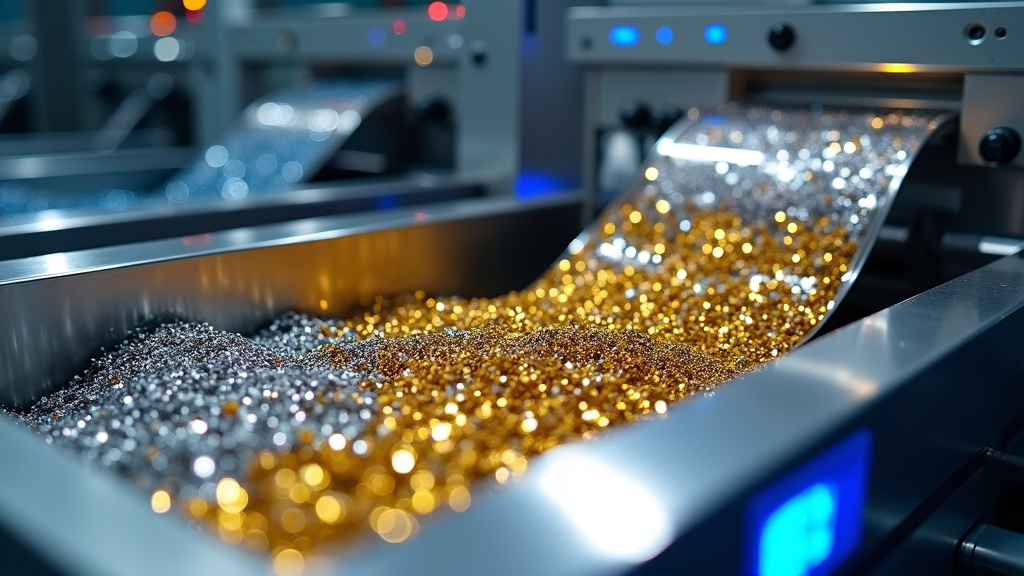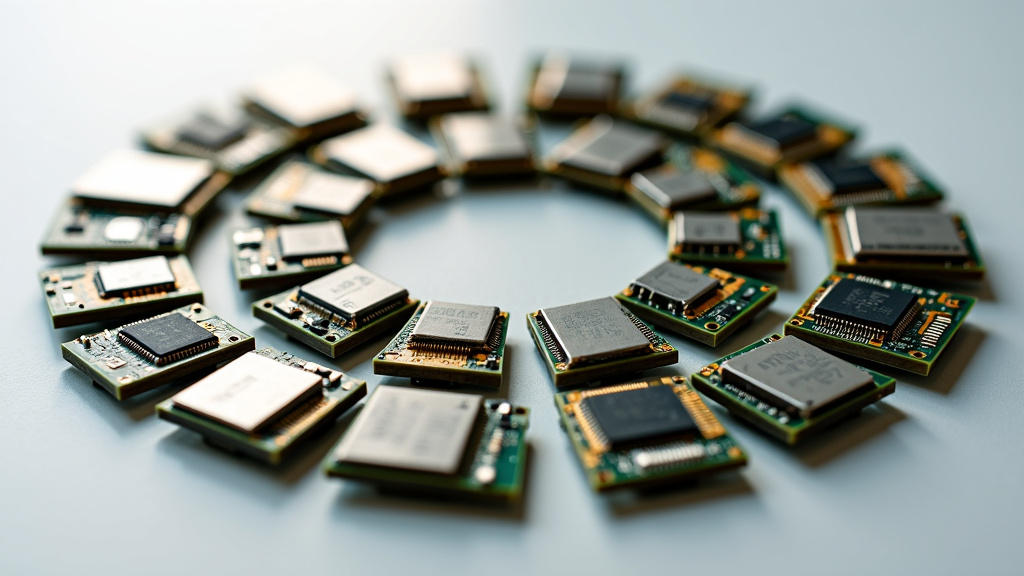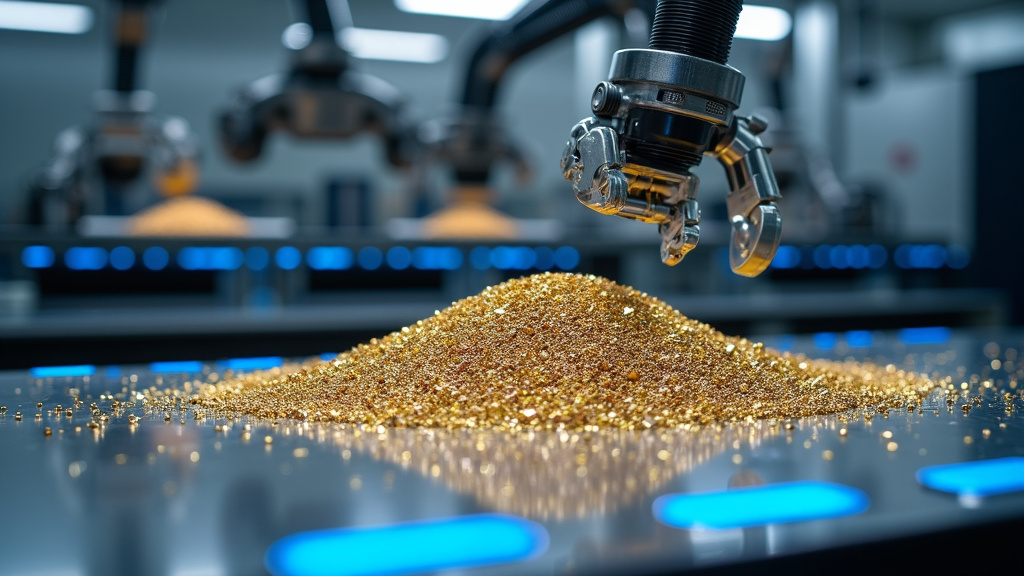5901 Botham Jean Blvd, Dallas, TX 75215
About Rare Metal Decommissioning Services
February 20, 2025Did you know that recycling just one aluminum can saves enough energy to power a laptop for 25 hours? This fact highlights the significant potential of recycling in our quest for sustainability. When it comes to rare metals, the stakes are even higher.
Today, rare metal decommissioning services are essential for efficient material reuse and environmental stewardship. These specialized processes help industries manage waste from obsolete electronics, industrial magnets, and other high-tech equipment containing valuable rare earth elements.
At the forefront of this effort are companies like Okon Recycling, which have developed advanced solutions to extract and repurpose these precious materials. Their innovative approaches not only reduce waste but also conserve natural resources by decreasing the need for environmentally harmful mining practices.
Rare metal recycling is a complex task. It requires a deep understanding of material composition, advanced processing techniques, and strict safety protocols. Yet the payoff is substantial for both the environment and the economy. By reclaiming these metals, we can significantly reduce greenhouse gas emissions associated with raw material extraction and processing.
Optimizing Rare Metal Decommissioning Processes

The need to improve waste management practices has never been more critical in today’s industrial context. As businesses face the dual challenges of environmental responsibility and economic sustainability, advanced recycling technologies are emerging as pivotal in material recovery. These innovative solutions are not only minimizing environmental impact but also transforming how industries handle the decommissioning of rare metals.
Efficient recycling processes are reshaping the waste management sector, providing benefits for both the environment and business performance. By maximizing material recovery, companies are discovering innovative methods to convert what was once waste into valuable resources. This shift towards resource optimization is a fundamental reimagining of industrial processes.
One of the most promising advancements in this field is the Acid-Free Dissolution Recycling Process. This groundbreaking technique is changing our approach to recovering and reusing rare earth metals. Unlike traditional methods that often rely on harsh chemicals, this process offers an environmentally friendly alternative without sacrificing effectiveness.
Advancing Material Recovery Through Innovation
The pursuit of more efficient recycling methods has led to significant technological advancements. These innovations are not merely incremental improvements; they represent a substantial leap in our ability to reclaim valuable materials from end-of-life products. From sophisticated sorting systems to novel chemical processes, the toolkit for material recovery is rapidly expanding.
A notable example is the development of advanced spectroscopic sensors. These high-tech devices can identify and sort materials with remarkable accuracy, even detecting trace amounts of valuable elements. This precision ensures that even the smallest quantities of rare metals can be recovered, maximizing the value extracted from waste streams.
Additionally, the integration of artificial intelligence and machine learning into recycling processes is opening new opportunities in waste reduction strategies. These smart systems can analyze complex waste compositions in real-time, optimizing sorting and recovery processes. The result is a more adaptive and responsive recycling system capable of adjusting to varying input materials.
Economic and Environmental Benefits of Advanced Recycling
The adoption of advanced recycling technologies is not just an environmental necessity; it is increasingly becoming a sound business decision. Companies leading this transformation are experiencing significant economic benefits. By reclaiming rare metals and other valuable materials, they reduce their reliance on volatile raw material markets and create new revenue streams.
The automotive industry, for example, has been particularly proactive in adopting these technologies. Manufacturers can now recover precious metals from catalytic converters and electronic components more efficiently than ever before. This not only reduces the environmental impact of vehicle production but also contributes to a more stable and sustainable supply chain.
Furthermore, the cost-effectiveness of these advanced processes is continuously improving. As technologies mature and economies of scale are realized, the financial barriers to adoption are decreasing. This trend is making advanced recycling solutions accessible to a broader range of industries, accelerating the transition towards more sustainable practices.
Case Studies: Real-World Applications
To fully appreciate these advancements, consider some real-world applications. In Japan, a leading electronics manufacturer has implemented a comprehensive rare metal recovery program. By using a combination of mechanical and chemical processes, they have achieved recovery rates of over 95% for certain rare earth elements from discarded electronics.
Another compelling case is from the mining sector. A Canadian company has developed a method to extract rare earth elements from coal ash, a byproduct of coal-fired power plants. This innovative approach not only provides a new source of these critical materials but also helps address the environmental challenges associated with coal ash disposal.
These examples highlight the transformative potential of advanced recycling technologies. They demonstrate how innovative thinking and technological expertise can turn environmental challenges into opportunities for sustainable growth and resource optimization.
The Road Ahead: Challenges and Opportunities
While progress in rare metal recycling is impressive, challenges remain. The complexity of modern products, with their intricate mix of materials, continues to pose difficulties for recyclers. Additionally, the global nature of supply chains means that coordinating recycling efforts across borders requires careful planning and cooperation.
However, these challenges present opportunities for further innovation. As industries continue to invest in research and development, more sophisticated and efficient recycling technologies are expected to emerge. The future of waste management lies in creating closed-loop systems where materials are continuously reused and recycled, minimizing waste and maximizing value.
Optimizing rare metal decommissioning processes through advanced recycling technologies is a crucial step towards a more sustainable and resource-efficient future. By embracing these innovations, industries are not just managing waste more effectively; they are redefining the very concept of waste. As we move forward, the continued development and adoption of these technologies will play a vital role in shaping a more circular and sustainable global economy.
| Method | Key Features | Environmental Impact | Efficiency |
|---|---|---|---|
| Acid-Free Dissolution | Selective leaching of REEs from e-wastes, high purity Co recovery | Eliminates use of hazardous acids | Recovers >99.9% pure REE oxides at 98% efficiency |
| Traditional Methods | Use of harsh chemicals for material recovery | Potential environmental hazards due to acid use | Varies depending on method and materials |
The Impact of Rare Metal Decommissioning on Global Sustainability

Recycling rare metals is crucial in the global drive for sustainability. As industries face resource scarcity and environmental concerns, reclaiming valuable materials from electronic waste offers a promising solution. This approach not only reduces reliance on traditional mining but also aligns with circular economy principles.
Electronic waste, or e-waste, is one of the fastest-growing waste streams globally. In 2022, an estimated 62 million tonnes were produced worldwide, yet less than a quarter was recycled appropriately, according to the World Health Organization. This highlights the urgent need for efficient recycling processes and the vast potential for resource recovery.
Recycling rare metals from e-waste offers numerous benefits. It significantly reduces the environmental impact of traditional mining, which can cause habitat destruction and pollution. Urban mining, or reclaiming materials from discarded electronics, presents a less invasive alternative.
Resource Conservation and Economic Benefits
Rare metal recycling is vital for conserving resources. Many electronic devices contain small amounts of precious and rare earth metals like gold, silver, platinum, and neodymium. These valuable materials are finite. By reclaiming them from e-waste, we can extend resource lifespan and reduce pressure on natural reserves.
The economic implications are substantial. As demand for these materials rises with technological advancements and renewable energy growth, recycling offers a cost-effective solution. The global e-waste recycling market could reach $62.5 billion by 2025, reflecting its economic potential.
Moreover, developing efficient recycling technologies creates new job opportunities in the green economy. From collection to advanced material recovery, the e-waste recycling industry can generate significant employment across various skill levels.
Advancing Circular Economy Principles
Recycling rare metals from electronic waste embodies circular economy principles. This model aims to eliminate waste and maximize resource efficiency by keeping materials in use as long as possible. Recovering and reusing rare metals helps create a closed-loop system, reducing the need for virgin material extraction and minimizing waste.
Implementing circular economy practices in rare metal recycling can lead to substantial environmental benefits. A study in Resources, Conservation and Recycling highlighted that recycling e-waste can reduce greenhouse gas emissions by up to 87% compared to primary production methods. This reduction aligns with global efforts to combat climate change and promote sustainable development.
Despite the advantages, global e-waste recycling rates remain low, with only about 17% formally recycled. This gap presents both a challenge and an opportunity for improvement. Policymakers and industry leaders must collaborate to develop measures that strengthen recycling, including subsidies for advanced technologies and stricter e-waste disposal regulations.
As we move towards a sustainable future, the importance of rare metal recycling cannot be overstated. It offers a viable path to resource conservation, environmental protection, and economic growth. Embracing these practices contributes significantly to global sustainability efforts and paves the way for a more circular, resilient economy.
Conclusion: The Future of Rare Metal Decommissioning Services

As sustainability takes center stage, rare metal decommissioning is becoming essential to a greener future. With rising demand for advanced technologies and growing environmental concerns, these specialized recycling services play a critical role in reducing waste and conserving resources.
Okon Recycling is leading this transformation, pioneering innovative decommissioning solutions that make rare metal recycling more efficient and accessible. Their commitment to sustainable practices proves that economic growth and environmental responsibility can go hand in hand.
Emerging AI-driven sorting technologies and circular economy principles are shaping the future of rare metal decommissioning. These advancements allow for precise material recovery, encourage eco-friendly product design, and significantly reduce landfill waste and carbon emissions.
Every recycled device contributes to a cleaner planet. By choosing Okon Recycling, businesses and consumers ensure that rare metals from outdated equipment are responsibly reclaimed, minimizing environmental impact while maximizing resource efficiency.
Take action today—partner with Okon Recycling for comprehensive decommissioning solutions that protect the environment and support a circular economy. Call 214-717-4083 to learn more and be part of the sustainable future we’re building together.
